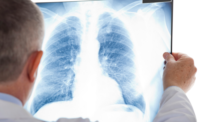During the past 15 years, substantial evidence has shown a strong link between Libby amphibole asbestos and higher risks of autoimmune diseases and disorders, the Center for Asbestos Related Disease (CARD) announced on Aug. 15.
The CARD clinic completed the six-year-long Libby Epidemiology Research Program study on the effects of asbestos on the immune system in the fall of 2015 and recently released preliminary data from that study.
As part of the three-fold project, research scientists from Idaho State University, Icahn School of Medicine at Mount Sinai and University of Montana, along with the CARD clinic, studied the effects of asbestos on the immune system, lung development and lung-scarring, and whether or not these health complications overlap.
According to Dusti Thompson, the CARD clinic outreach specialist, based on the preliminary results of the studied 950 self-reported autoimmune diagnoses, there may be as much as a 10-fold increase in risk for lupus, scleroderma, and rheumatoid arthritis in people exposed to amphibole asbestos.
There’s a long list of autoimmune diseases, but the most common caused by amphibole asbestos are lupus, scleroderma, and rheumatoid arthritis among much more, rarer autoimmune disorders, which are not classified as of yet. These diseases do tend to run in families, as a gene-environment interaction.
Researchers found that residents of the Libby, Montana, area exposed to amphibole asbestos are significantly more likely to have a positive Antinuclear Autoantibody test, a blood test used to evaluate a person for autoimmune disorders.
Researchers note that it’s important to remember these autoimmune diseases remain very rare, even in Libby. The preliminary data presented also does not indicate that everyone exposed to the amphibole asbestos will get one of these diseases.
The Agency for Toxic Substances and Disease Registry awarded a $5 million grant to the Icahn School of Medicine at Mount Sinai in 2009, in partnership with researchers at ISU and MSU, to create the Libby Epidemiology Research Program, which had the mission of furthering research in long-term health effects of amphibole asbestos in Libby and the surrounding community.
The research from Libby will bring about change that will help a lot of people in areas throughout the U.S. that experience similar issues with certain dust.
Since the early 2000s, the CARD Clinic, in partnership with numerous organizations and universities, have been studying the health complications of amphibole asbestos. The current preliminary results add to the Agency for Toxic Substances & Disease Registry’s data presented in a 2000-2001 extensive screening program in Libby. In that study, more than 7,000 residents were questioned and 6.7 percent of the population reported having lupus, rheumatoid arthritis or systemic sclerosis, which is proportionally higher than the less-than one percent of the U.S. population who have ever suffered from these conditions. In addition, researchers also found that 18 percent of 6,668 had abnormalities in the lining of their lungs, with the average rate of the U.S. being 0.2 to 0.3 percent.
Source: The Western News
Click here to read about Asbestos in Electrical Wiring on www.mesothelioma.net.

